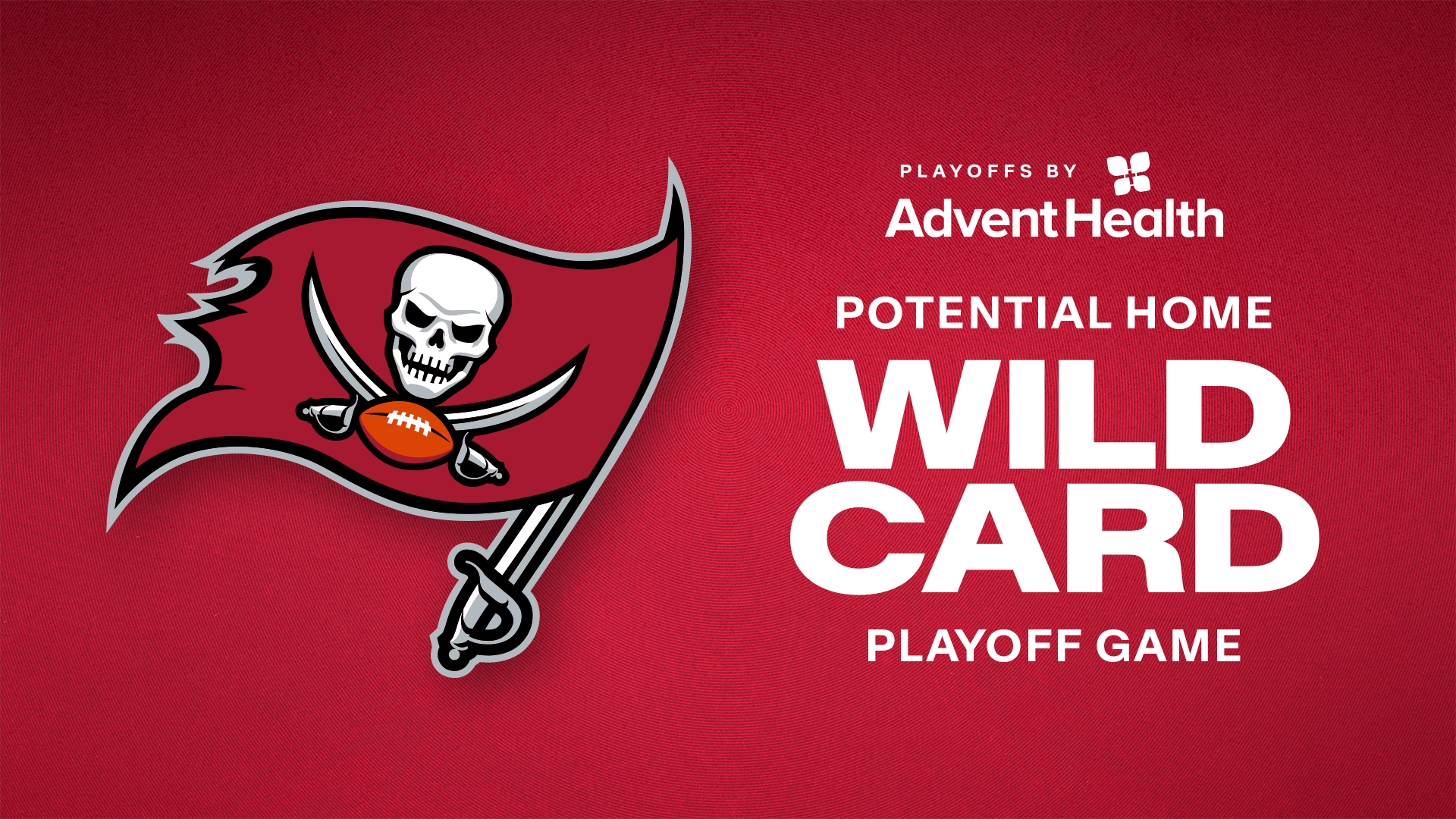As I post this column on Friday, the Answer Man is counting down the last few hours of 2004. It's New Years Eve day, and you know what that means.
Yep, another intro that practically writes itself.
You know where I'm headed with this, I'm sure. That's right – it's time for the Answer Man's New Year's resolutions. See below, and feel free to borrow any of them for yourself. And if you're sending in new questions over the next few days, and you happen to have a resolution you want to share (preferably Buc or NFL-related), why not include it?
Without further ado, here's what the Answer Man will be working on in 2005:
I resolve not to speak so venomously about the NFL rulebook. After all, it has provided me with many an answer for this column, albeit in a headache-inducing form of prose. (Whoops! Can I have a mulligan on that one?)
I resolve to get a new picture taken for my column. Maybe it's the tedium of seeing that same pose every week that prompts so many of you to make indelicate remarks about my more, uh, striking features.
I resolve not to do yet another holiday-themed introduction when we hit Groundhog Day.
I resolve to make it through April without using the term 'draftnik.' Especially in self-reference.
I resolve not to punch the TV set any more after an announcer berates a coach for 'calling a five-yard pass on third-and-seven.' (I mean, do these announcers really think a coach says into his headset, "Alright guys, we need seven yards for the first down; let's run a play that will get us five yards, because that would be really close?" There are multiple options on most pass plays; if the receiver you want to hit for the first down is covered, isn't it better to throw a short pass and hope the pass-catcher can get the extra yardage than to just throw it away, or worse, throw an interception? I'm ranting, but cut me a break here...it's not the new year just yet.)
For that matter, I resolve to stop punching TV sets, period. Despite all my powers, the Answer Man is not impervious to pain.
I resolve not to cheer in the press box. (That's a no-no up there, but sometimes it's so hard to hold back.)
I resolve to drink less Diet Coke, though the caffeine deprivation could make poring through the aforementioned rulebook more difficult to endure.
I resolve to check my columns over a second time for typos from now on (Allen from Panama City caught me on 'exhaused' instead of 'exhausted' and 'revert tot he' instead of 'revert to the.' Embarrassing.)
I resolve to get videos back to Blockbuster on time. I mean, I paid $16 last week for the Answer Wife to watch Before Sunset on a 32-inch screen. That has got to stop.
I resolve to get to more of the oldest Answerling's Pop Warner games. It's a blast. He wears number 55 because he loves Derrick Brooks. Sweet.
I resolve to read Mark St. Amant's Committed: Confessions of a Fantasy Football Junkie to see if my obsession for that game-within-the-game is still at a normal level or as oversized as the author's. And to see if I need help. (I know the Answer Wife's feelings on that.)
And, most of all, I resolve to try to be less wordy, long-winded and overdrawn.
In the next column.
Now on to the final fan questions of 2004.
**
- John Kimbrell of Ft. Myers, Florida asks:
Oh Wise(answer)man, it is Christmas you know, in Vol. 19 you explained the "orange sleeve" but left me perplexed about the "green hat". I have spent many restless nights pondering the "green hat". I can't take it anymore, please tell me about the "green hat".
Answer Man: I bring these things on myself, you know. The original question that led to all of this was on 30-second timeouts versus full timeouts. In answering it, I explained the job of the Orange Sleeve on the sideline then rather innocently added, "There is also a Green Hat, but let's not get into that."
Innocently? Maybe I should say naively. There was no way I was going to get away with tossing that out there. Still, I feel bad that I've robbed you of so much sleep, John, so here's your answer.
For those who missed it, we discussed the Orange Sleeve in Volume 19, as John mentions. The term refers to an actual orange sleeve, naturally, but it is also used to describe the person who wears this particularly gaudy accessory. The Orange Sleeve stands on the sideline with his extremely visible arm and signals to the officials when it is time to take a commercial break in the TV broadcast.
There is also a person known as the Green Hat, for similar reasons. Actually, the Green Hat and Orange Sleeve are running a joint operation. Perhaps the Answer Man is thinking into this a bit too much, but you can remember the roles of those two by the part of their bodies that their work-related accessories cover.
That is, the Green Hat is the real brains of the operation. He is an actual representative of the network and he is wired into the network TV control truck, which is parked somewhere in the bowels of the stadium. (The Answer Man says 'he' because, in the Bucs' case, the Green Hat is a man.) He coordinates the breaks with the truck, then tells the Orange Sleeve when to put his neon arm into action. The Orange Sleeve acts out what the Green Hat thinks up. The officials want to be able to find both of them easily on the sideline, thus the bright sleeve and hat.
The Green Hat-Orange Sleeve duo always stands on the press box side of the field, usually near the 30-yard line on one side of the team's bench.
**
- Nick Lathrop of Westerly, Rhode Island asks:
Dear Answer Man, say a Michael Clayton gets pushed out of bounds by Ricky Manning, (Jr.). I am aware that Michael can come back into play because he was "forced out," but how long can he stay out of bounds? Can he use it to his advantage, maybe run 10 yards and then catch the ball back in bounds?
Answer Man: Actually, Nick, I'm going to have to disagree with your initial assumption. Whether a player goes out of bounds on his own or is forced out of bounds by a defender, he immediately becomes an ineligible receiver, in the same way that offensive linemen are ineligible. He can come back onto the field of play if he was forced out, but he cannot be the first player to touch the ball (he could legally catch a deflection or recover and advance a fumble).
Defensive backs know to look for the drop of a hat in this situation. An official who sees a receiver (or a forcer on a punt) go out of bounds will throw his hat to mark the spot that the player went out of bounds. Once a DB sees this, he knows that player is no longer eligible to catch a pass. If the hat isn't dropped, the DB can't be sure that the official saw the receiver go out of bounds.
Of course, in the case of a defensive back and a receiver, this forcing out would have to occur almost right off the line. Once the receiver gets past the five-yard line, a defensive back can be called for illegal contact if he shoves the receiver out of bounds, or in any direction.
The second part of your question is still valid, however. And the answer is no, the rules are written specifically to deter players from trying to use the out-of-bounds areas to their advantage. This is a much more common sight on punt coverage. A forcer will often be ridden out of bounds by one or two blockers on the punt return team. He can come back inbounds and make a tackle, but he has to try to get back onto the field of play as soon as he can. If an official judges that a player continued to run out of bounds when he could have come back in, he can flag him for unsportsmanlike conduct. That player can also not be the first person to touch the ball, so he's no good anymore in trying to down the kick inside the five.
**
- Doug Scott of Tampa, Florida asks:
Answer Man, you have written both expertly and voluminously about the salary cap. But I have still another question - In the unfortunate instance where a player sustains a career-ending injury, does all of the guaranteed portion of his contract (presumably the signing bonus) accelerate into the current period the way it does when a player is cut? Just thinking about it, it would seem a contract like Mike Vick's has the potential to "bankrupt" a team's salary cap in a given year were that to occur. Thanks!
Answer Man: Doug, I'll cop to voluminously, but I'm far from expert. I have a working knowledge of the basics, as many fans do (hopefully a few more since we've been discussing the cap this season), but when it comes to answering a question like this, I take it to the real experts.
In this case, I had the help of a representative of the NFL Management Council. These folks truly are experts on all things contract and cap-related, and they must approve every player contract in the NFL.
One quick note: Since it is Buccaneer team policy never to discuss or disclose a player's contract information, it only seems right that we should afford a player on another team the same courtesy. Thus, we won't be getting into any specifics on Vick's contract. Chances are, you've seen them in the media already, however.
I'll start with the short answer, as usual: In your example, the Falcons would find a way to keep from getting killed by cap acceleration, but it would be far from an ideal situation for player or team.
Okay, some details. The first thing we must clear up here, Doug, is your supposition that the team would release Vick or put him on the reserve/retired list if he suffered a career-ending injury, thereby causing his prorated signing-bonus cap hit to accelerate. In fact, the team would be under no obligation to do so.
Career-ending injuries for young players are relatively rare – Bo Jackson comes to mind, but not many others. Season-ending injuries are fairly common, of course. So if a young player at the front end of a long contract got significantly hurt, let's say, at the beginning of the 2005 season, his team would probably put him on injured reserve and try to help him recover. If by the next season he was still not able to play, he could again be put on a reserve list, perhaps IR or PUP (physically unable to perform). This could continue for any number of years, thereby keeping that player under contract and keeping his signing-bonus cap hit from accelerating. Of course, that means the team would also have to pay that player his salary each of those years.
The Answer Man doesn't know all the specifics of Vick's contract and, like I said, I wouldn't discuss it if I did. But with a deal of that size and length, there are probably quite a few complicated features, such as guaranteed portions of annual salaries, or roster bonuses that become guaranteed on the event of injury. One way or another, having a long-term injury occur to a player with such a significant contract is not going to be easy for his team, so let's hope that's something few teams ever have to find out.
But, yes, if a player were to suffer a career-ending injury near the beginning of a 10-year contract with a large signing bonus, and if his team were to then release him (an injury settlement would have to be worked out first), the signing bonus would accelerate to that year. That would be tough.
**
- Joe of Tampa, Florida asks:
Greetings AM. 2 quick questions... 1. Will you be using your superpowers to answer questions during the offseason and 2005 season? and 2. When I watch Bucs home games on TV I notice someone on the Bucs sideline throws a football into the air before the snap of almost every play in the game. Can you find out just who does this? thanks (Alternate Jerseys next year = Winning season)
Answer Man: I didn't edit out that last editorial comment by Joe so I could tell all of you that, yes, I am still receiving and reading your many e-mails on the issue. If you would like to see our most recent discussion of the alternate-jersey thing, please check out Volume 16.
Back to your questions, Joe.
Yes, the Answer Man is happy to say he has been retained for the 2005 offseason, with the possibility of extending the job into next season. The column may not retain its weekly format; it could appear more or less frequently depending upon the volume of questions received. I've noticed that a lot of the issues we've discussed have arisen from confusing moments seen in games over the weekend.
As for that ball you're seeing on the sidelines, it is actually being kicked in the air, not thrown, if you're writing about what I think you are. Punter Josh Bidwell commonly strolls the sideline and practices his release and kick, punting the ball softly straight up in the air a few feet. He does this over and over again. I would imagine that's what you're seeing on the television broadcast.
**
- Larry Edwards of Ellenton, Florida asks:
As the clock wound down to 7 seconds in the Packers @ Vikings, the Packers were out of timeouts and couldn't stop the clock. Brett Favre asked the ref for a measurement and they obliged allowing the Packers time to get set for the field goal. This is the first time in the 40 some years I've been watching football that I can remember seeing this happen. Do you know what the rule is? Thanks.
Answer Man: Well, the key thing here, Larry, is that you can ask for a measurement, but the referees don't have to oblige.
I didn't see the sequence in question, but I checked it out on the play-by-play; you're referring to the 42-yard field goal by Green Bay at the end of the first half that made the score 21-17, Minnesota.
I notice that the play was eventually ruled a five-yard completion on third-and-six; in other words, it probably was close enough that an official would grant a measurement, and it's fair for Favre to want to know. If the player made the first down, then Favre would simply spike the ball on the next snap and they would kick on second down. If he didn't make it, the kick team has to run on the field fast. Favre took the snap on the previous play with 25 seconds left, so getting the kick team on the field and getting the kick off would have been tough.
After the measurement, the officials spot the ball again and signal for the clock to start again, which it presumably did. As you described, the Packers ran their kicking personnel onto the field while the measurement was taking place. When the ball was spotted, they were ready to go, and they got the snap off with four seconds to play. They had used their last time out of the half about four game minutes before that.
So, yeah, it was smart, veteran move by Favre, but it took a pretty specific set of circumstances to make it happen. Had the receiver been tackled two yards shy of the first down, the Packers probably would not have been granted the measurement.
**
- Sandra Wentzel of Wimauma, Florida asks:
This may be a stupid question and may have been previously asked and answered but I have often wondered as many punters seem to kick the ball a long distance what would the result be if on a punt the ball happened to go through the end zone uprights? Would that be counted as a FG? Told you it was s stupid question. LOL
Answer Man: Don't be so hard on yourself, Sandra. Your question is fine. Maybe we need an Everything You Ever Wanted to Know About Football But Were Afraid to Ask book. For crying out loud, I've answered the pass-off-the-crossbar question – twice!
It would also be easy to dismiss your question with a simple no. However, that wouldn't be completely accurate.
No, if a punter kicks the ball in his normal fashion and the ball goes through the goal posts, that is not a successful field goal and no points are awarded. It's just another touchback, wherein the ball happened to take a path through the goal posts.
However, a punter could conceivably try a field goal by drop-kicking the ball. We discussed that all-but-obsolete technique in Volume 21 two weeks ago. If a player drops the ball and kicks it just as it reaches the ground or just after it bounces off the ground, that is a drop-kick, and that method can be used to try a field goal. However, if he missed, it would not double as a successful punt. Since it would be a missed field goal, the ball would return to the spot of the kick.
**
- Bob Perrone of Jacksonville, Florida asks:
**Can you please tell me the jersey number for the following players?
Walter Carter, 1987, Defensive End Lee Paige, 1987, Defensive Back
Thank you.**
Answer Man: This is one case in which the Answer Man would have enjoyed a few more details in the question. What exactly has prompted you to ask for those two numbers? A research project? If so, into what? Just curious.
Anyway, I'm here to please.
Those two players, as I guessed immediately when I saw the season in question, were 'replacement' players during the NFLPA strike of 1987. Three of the 15 games played that season used replacement teams, unlike in 1982, when the season was simply shortened to nine games by a players' strike.
Carter, a defensive end who played in two games and started one, wore number 78. Paige, a defensive back who played in all three games but didn't start, wore number 29.
By the way, if you ever want to win a bar bet, ask an NFL fan if Jeff George or Derrick Thomas played for the Buccaneers. The answer, to his sure surprise, will be yes. It may not be the Jeff George or Derrick Thomas that your sucker is thinking of, but players by those names suited up for Tampa Bay during the replacement games. George was a defensive back and Thomas was a running back.
(See what I mean about that wordiness resolution? I just subjected a man who simply wanted two jersey numbers to a five-paragraph essay.)
**
- Teri Killens of Shreveport, Louisiana asks:
Hey Answer Dude, got a question for you, but it's not about football. I hope that's okay. Here's what I was wondering…I've noticed in reading your columns this year (I only started coming to the site this year, so I don't know if you've done this before) that you use an "s" at the end of your possessive nouns when the word already ends in an "s". For instance, you would say "Simms's pass" or "Edwards's interception". What gives? I always thought you didn't put another "s" on the end of a possessive noun if it ended in "s". I guess most of your readers won't care, but that always bothers me when I read things on this site (the other writers do it, too).
Answer Man: I've been wondering for months if someone would call me on that, and now I'm glad that you did, Teri, because, in the process of formulating my defense, I made a surprising discovery. I think I've been doing it wrong. (Like I said, surprising, huh?)
I, too, had grown up thinking that singular nouns ending in an S got only an apostrophe to become possessive. Albert Pujols' 500-foot grand slam, the heiress' enormous fortune…things like that. When I started writing for this site, I wanted to make sure that I followed the style of the other writers, so I asked for their guidance. I was given a popular punctuation book to read, wherein I learned, as had the other writers recently, that the proper method, contrary to what I had always believed, was to add an apostrophe AND an S. Thus, it should be heiress's fortune.
However, we may have misinterpreted the rule here at Bucs.com, because we just checked the Associated Press Stylebook and Libel Manual (fortunately, we haven't needed that second part yet). Apparently, we adopted the rule too broadly, because it does not apply to proper names. In other words, "Pujols' grand slam" is correct. "Simms's pass" is not.
Our bad. I've spoken with the editors of the site and we will all now return to the way Mrs. Smith taught us in the fifth grade.
Incidentally, there are a few other rules that make it more complicated, such as the exception that a common noun ending in an S only gets an apostrophe if the next word starts with an S. So "heiress's fortune" is right but "heiress's stallion" would be wrong. It would just be "heiress' stallion."
There's more, but as Teri points out, this is a football site, not English 101. (Oh, Teri, by the way, in American English we put the sentence-ending punctuation inside the quotation marks, as such: "Edwards' interception." Gotcha back!)
**
- Rance Kay of Ocala, Florida asks:
This past August we traded Jason Whittle to the Giants for a conditional draft choice. He is their starting OG at this point. What will our draft choice end up being for the trade?
Answer Man: Rance, when the Bucs announced that deal, they referred to the pick as undisclosed, not conditional. To this point, the Bucs have not chosen to reveal what the terms of the trade were, as I've discussed previously, so I cannot provide you with the specific answer.
However, you are right; the terms are conditional. That means Whittle's role in New York is significant. Again, I can't tell you the specifics of the conditions until the team decides to release them. In most cases, a 'conditional' pick means either the pick will move up in terms of its round in accordance with playing time, or an additional pick(s) will be added into the deal.
**
Can't submit a column to the editors without padding it with a handful of 'quickies,' of course, so let's run through some easy ones before getting to work on those New Year's Eve plans.
- Terry Ewing of Altavista, Virginia asks:
mr. answer man, i have been a buc fan for the entire history of the buccaneers, through thick and thin, triumph and disappointment. In all of those years, how many times have the bucs won division and conference titles? i know about the super bowl but my memory is not what i used to be. A lifetime bucs fan.
Answer Man: Well, in that Super Bowl year the Bucs won the NFC South and the NFC, so that's one each. You can't play in the Super Bowl without winning a conference title, so that means 2002 is the Bucs' only mark in that column (though they played for the NFC title in both 1979 and 1999 and lost).
Tampa Bay has won four division titles: The NFC Central in 1979, 1981 and 1999 and the NFC South in 2002.
**
- Deven Glover of Venice, Florida asks:
Which quarterback has "Sackmasta" Simeon Rice sacked the most?
Answer Man: Gotta give kudos to the Buccaneers' P.R. department on this one. Right there on page 176 of the 2004 Media Guide is a breakdown of Rice's sacks by quarterback. Update the list to include his 12 takedowns this year, and the 'winner' is New Orleans' Aaron Brooks.
Rice has sacked Brooks 12 times, including three times this season. Next on the list is Philadelphia's Donovan McNabb (eight) and the much-traveled Kerry Collins (seven). Michael Vick is fourth on the list at 4.5, including three times this season.
**
- Ikran of San Diego, California asks:
who has scored the most touchdowns in tampa bay history and who has scored the most touchdowns that is on the team at this time?
Answer Man: Fullback Mike Alstott holds the Buccaneers' career touchdown record with 61, 15 more than James Wilder, who is second on the list. Obviously, Alstott is also the current Buccaneer with the most touchdowns with Tampa Bay. Including all touchdowns scored with any NFL team, Tim Brown is the runaway leader on the Bucs' current roster, with 105 career touchdowns, exactly 100 of which are receiving scores. He got his 100th career TD catch this season, appropriately enough when the Bucs visited Oakland.
**
- Jim Byers of Elkhart, Indiana asks:
Did Ken Dilger play on the Super Bowl team or was he still with the Colts then?
Answer Man: Oh, you better believe Ken has a Super Bowl ring from 2002! Dilger signed with the Bucs that offseason, one of the first free agents brought aboard by Jon Gruden, and played in all 19 games, with 18 starts. In the Super Bowl, Dilger caught one pass for 12 yards and blocked for a 150-yard rushing effort by the Buccaneers.
**
- And just for the heck of it, Warren Archer of Easton, Maryland asks…uh, shares this:
first of all it was tampa bay's destiny to have won superbowl 37. the key mojo number was 27. it was their 27 year in the league. florida was the 27 state in the union. we beat philly game time temp 27 degrees. we kicked the final extra point with 27 sec left in the game. TB was the 27 team in the nfl. it was their unsung mojo.brad johnson was 227 in the draft. my birthday. it was my day.
Answer Man: I've got nothing to add. Just thought you all might enjoy that one.
**
That's it for this week. The Answer Family and the Buccaneers wish all of you a safe New Year's Eve and a splendid 2005 filled with many Buccaneer victories.




































